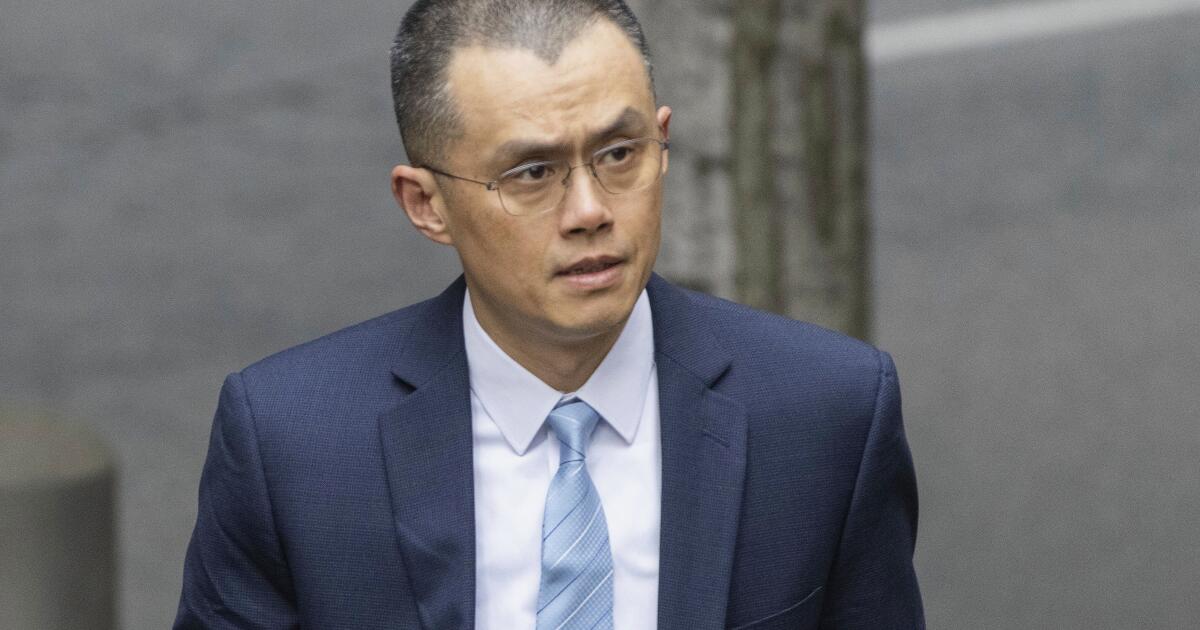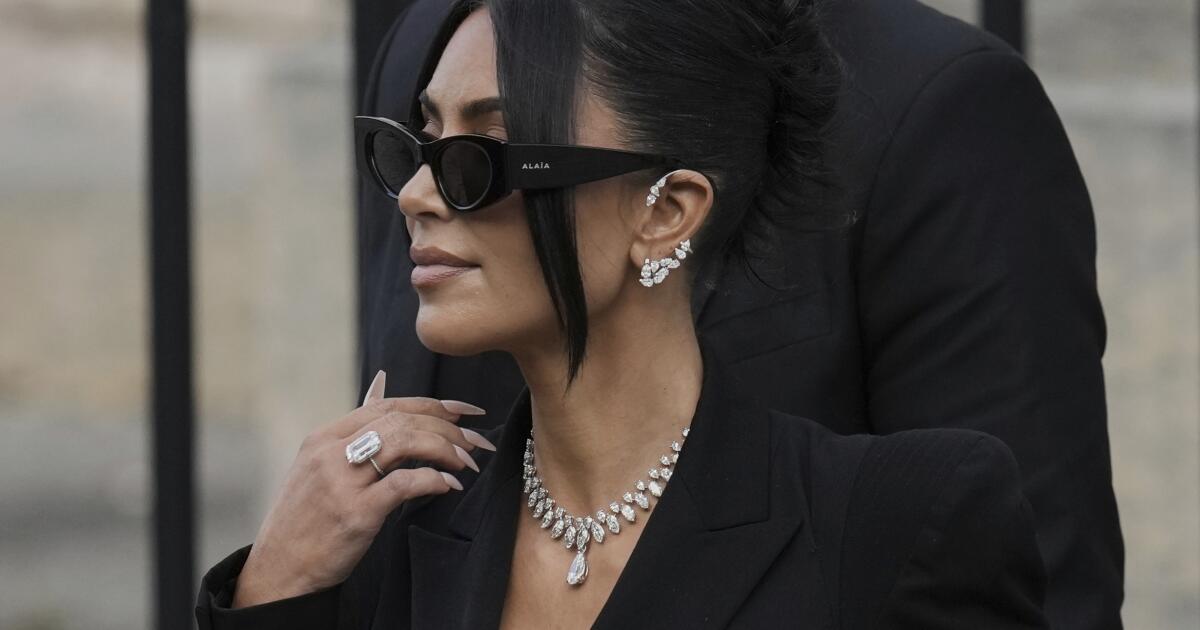Trump pardons Binance founder Changpeng Zhao, high-profile cryptocurrency figure
WASHINGTON — President Trump has pardoned Binance founder Changpeng Zhao, who created the world’s largest cryptocurrency exchange and served prison time for failing to stop criminals from using the platform to move money connected to child sex abuse, drug trafficking and terrorism.
The pardon caps a monthslong effort by Zhao, a billionaire commonly known as CZ in the crypto world and one of the biggest names in the industry. He and Binance have been key supporters of some of the Trump family’s crypto enterprises.
“Deeply grateful for today’s pardon and to President Trump for upholding America’s commitment to fairness, innovation, and justice,” Zhao said on social media Thursday.
Zhao’s pardon is the last move by a president who has flexed his executive power to bestow clemency on political allies, prominent public figures and others convicted of crimes.
White House press secretary Karoline Leavitt announced the pardon in a statement and later told reporters in a briefing that the White House counsel’s office “thoroughly reviewed” the request. She said the administration of Democratic President Biden pursued “an egregious oversentencing” in the case, was “very hostile to the cryptocurrency industry” and Trump “wants to correct this overreach.”
The crypto industry has also long complained it was subject to a “regulation by enforcement” ethos under the Biden administration. Trump’s pardon of Zhao fits into a broad pattern of his taking a hands-off approach to an industry that spent heavily to help him win the election in 2024. His administration has dropped several enforcement actions against crypto companies that began during Biden’s term and disbanded the crypto-related enforcement team at the Justice Department.
Former federal prosecutor Mark Bini said Zhao went to prison for what “sounds like a regulatory offense, or at worst its kissing cousin.”
“So this pardon, while it involves the biggest name in crypto, is not very surprising,” said Bini, a white collar defense lawyer who handles crypto issues at Reed Smith.
Zhao was released from prison last year after receiving a four-month sentence for violating the Bank Secrecy Act. He was the first person ever sentenced to prison time for such violations of that law, which requires U.S. financial institutions to know who their customers are, to monitor transactions and to file reports of suspicious activity. Prosecutors said no one had ever violated the regulations to the extent Zhao did.
The judge in the case said he was troubled by Zhao’s decision to ignore U.S. banking requirements that would have slowed the company’s explosive growth.
“Better to ask for forgiveness than permission,” was what Zhao told his employees about the company’s approach to U.S. law, prosecutors said. Binance allowed more than 1.5 million virtual currency trades, totaling nearly $900 million, that violated U.S. sanctions, including ones involving Hamas’ al-Qassam Brigades, Al Qaeda and Iran, prosecutors said.
“I failed here,” Zhao told the court last year during sentencing. “I deeply regret my failure, and I am sorry.”
Zhao had a remarkable path to becoming a crypto billionaire. He grew up in rural China and his family immigrated to Canada after the 1989 Tiananmen Square massacre. As a teenager, he worked at a McDonald’s and became enamored with the tech industry in college. He founded Binance in 2017.
In addition to taking pro-crypto enforcement and regulatory positions, the president and his family have plunged headfirst into making money in crypto.
A stablecoin launched by World Liberty Financial, a crypto project founded by Trump and sons Donald Jr. and Eric, received early support and credibility thanks to an investment fund in the United Arab Emirates using $2-billion worth of World Liberty’s stablecoin to purchase a stake in Binance. Stablecoins are a type of cryptocurrency typically tied to the value of the U.S. dollar.
A separate World Liberty Financial token saw a huge spike in price Thursday shortly after news of the pardon was made public, with gains that far outpaced any other major cryptocurrency, according to data from CoinMarketCap.
Zhao said earlier this year that his lawyers had requested a pardon.
It is not immediately clear what effect Trump’s pardon of Zhao may have for operations at Binance and Binance.US, a separate arm of the main exchange offering more limited trading options to U.S. residents.
Weissert and Suderman write for the Associated Press. Suderman reported from Richmond, Va.

